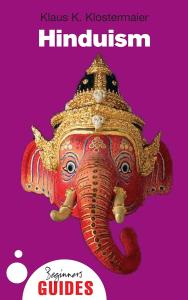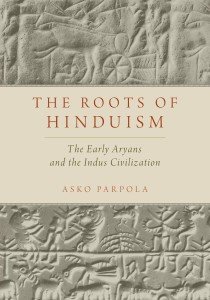Review of Patrick Olivelle’s Translation of the Upanisads
Part of the Oxford World’s Classics Series, Oxford University Press, 2008
The Oxford World’s Classics series has long established itself as a repository of scholarly excellence, offering accessible translations of some of the world’s most important literary and philosophical texts. Among its treasures is Patrick Olivelle’s translation of the Upanisads, published by Oxford University Press in 2008. This edition opens the door to the profound metaphysical world of ancient Indian philosophy, providing readers with a meticulously crafted translation and authoritative commentary. Known as the source texts of Hindu philosophy and spirituality, the Upanisads have influenced thinkers and seekers across the globe for millennia. Olivelle’s contribution to this field, both as a translator and as a scholar, is significant.
About Patrick Olivelle
Patrick Olivelle is an internationally renowned scholar of Indian philosophy, ancient texts, and social history. Born in Sri Lanka, with a B.A. from the University of Oxford and a Ph.D. from the University of Pennsylvania (Ph.D.), Olivelle has dedicated his academic career to the study of Sanskrit texts and ancient Indian culture. He currently serves as Professor Emeritus at the University of Texas at Austin, where his research has earned him widespread acclaim.
Olivelle’s work is characterized by an interdisciplinary approach that blends philology, history, and philosophy. He is particularly noted for his expertise in the Upanisads, the Dharmasutras, and the Arthashastra. His previous translations and studies have received numerous honors, marking him as a leading figure in the field of Indology. His dedication to making classical Indian texts accessible to modern readers is both commendable and transformative, bringing these works into the realm of global scholarly discourse.
The Upanisads: Context and Significance
The Upanisads are a collection of ancient Indian texts composed between the 8th and 5th centuries BCE. They represent a philosophical evolution from the ritualistic traditions of the Vedas, exploring themes such as the nature of ultimate reality (Brahman), the self (Atman), and the interconnectedness of existence. Often referred to as Vedantic literature, the Upanisads serve as foundational texts for Hindu philosophy and spirituality.
These writings are more than religious scripture; they are profound inquiries into the nature of consciousness, existence, and liberation (“moksha”). Their dialogues often unfold through conversations between sages, kings, and seekers, offering a poetic and enigmatic tapestry of ideas that transcend cultural and temporal boundaries. The “Upanisads” have inspired philosophers such as Schopenhauer and influenced movements ranging from Transcendentalism to modern spirituality.
The Translation: Clarity, Accessibility, and Precision
One of the most striking aspects of Olivelle’s translation is its clarity. The Upanisads are notoriously challenging, characterized by dense metaphysical concepts and linguistic ambiguity. Olivelle navigates these complexities with remarkable skill, rendering the Sanskrit texts into English that is both readable and faithful to the original.
Olivelle’s introduction is a masterclass in contextualization. He provides the reader with a concise yet comprehensive overview of the historical, philosophical, and linguistic backdrop of the Upanisads. This sets the stage for a deeper understanding of the translated texts, particularly for readers unfamiliar with the intricacies of Indian philosophy.
The translation itself achieves a balance between literal fidelity and interpretive accessibility. Olivelle avoids excessive paraphrasing, allowing the original text’s poetic and enigmatic qualities to shine through. At the same time, his annotations and commentary offer invaluable guidance, elucidating key terms and concepts that might otherwise remain obscure.
Editorial Features and Scholarly Apparatus
As part of the Oxford World’s Classics series, this edition of the Upanisads includes several features that enhance its usability and scholarly value. The introductory essays are concise yet dense with information, offering insights into the texts’ philosophical, historical, and cultural dimensions. Olivelle’s footnotes are equally impressive, providing readers with essential clarifications without overwhelming them with academic jargon.
The glossary deserves special mention, as it serves as an excellent resource for understanding Sanskrit terms that are central to the Upanisads. Terms like “Brahman,” “Atman,” and “Maya” are explained with precision, adding to the reader’s comprehension of the texts. The bibliography and index further underscore the scholarly rigor of this publication, making it a valuable resource for students and researchers.
Strengths of the Translation
· Faithfulness to Original Texts: Olivelle’s translation adheres closely to the original Sanskrit, preserving the philosophical richness and lyrical quality of the Upanisads.
· Accessibility: The clear and engaging prose makes these complex texts approachable for general readers without sacrificing scholarly depth.
· Contextual Insight: The introduction and annotations provide a robust framework for understanding the historical and philosophical significance of the Upanisads.
Limitations and Critiques
While Olivelle’s translation is exemplary in many ways, it is not without minor limitations. Some critics have argued that the translation could delve deeper into the interpretive debates surrounding specific passages of the Upanishads. For example, the ambiguity of metaphysical concepts such as “Brahman” and “Atman” leaves room for subjective interpretation, and Olivelle’s commentary occasionally stops short of exploring these debates in full.
Additionally, scholars of Indian philosophy might find the format somewhat restrictive due to its focus on accessibility. Academic purists may wish for a more detailed exploration of grammatical structures and linguistic nuances, which are only briefly touched upon in this edition.
Impact and Reception
Both scholars and general readers have widely praised Patrick Olivelle’s translation. It has been lauded for its meticulous scholarship, elegant prose, and ability to bridge the gap between ancient Indian philosophy and contemporary understanding. Many readers have described this edition as a transformative experience, deepening their appreciation for the Upanisads and their timeless wisdom.
The Upanisads translated by Olivelle have also found their way into academic curricula, serving as a cornerstone for courses on Indian philosophy and world religions. Its inclusion in the Oxford World’s Classics series further cements its reputation as an authoritative edition.
Conclusion
Patrick Olivelle’s translation of the Upanisads stands as a landmark achievement in the field of Indology. By combining scholarly rigor with accessibility, Olivelle has made these profound philosophical texts available to a global audience, ensuring their continued relevance in the modern era. Whether you are a seasoned scholar or a curious reader exploring Indian philosophy for the first time, this edition offers a gateway to one of humanity’s most enduring traditions of thought.
In sum, Olivelle’s work is more than a translation; it is a bridge between worlds, connecting the wisdom of ancient sages to the seekers of today. For anyone looking to delve into the rich tapestry of the Upanisads, this edition is not just recommended—it is essential.






